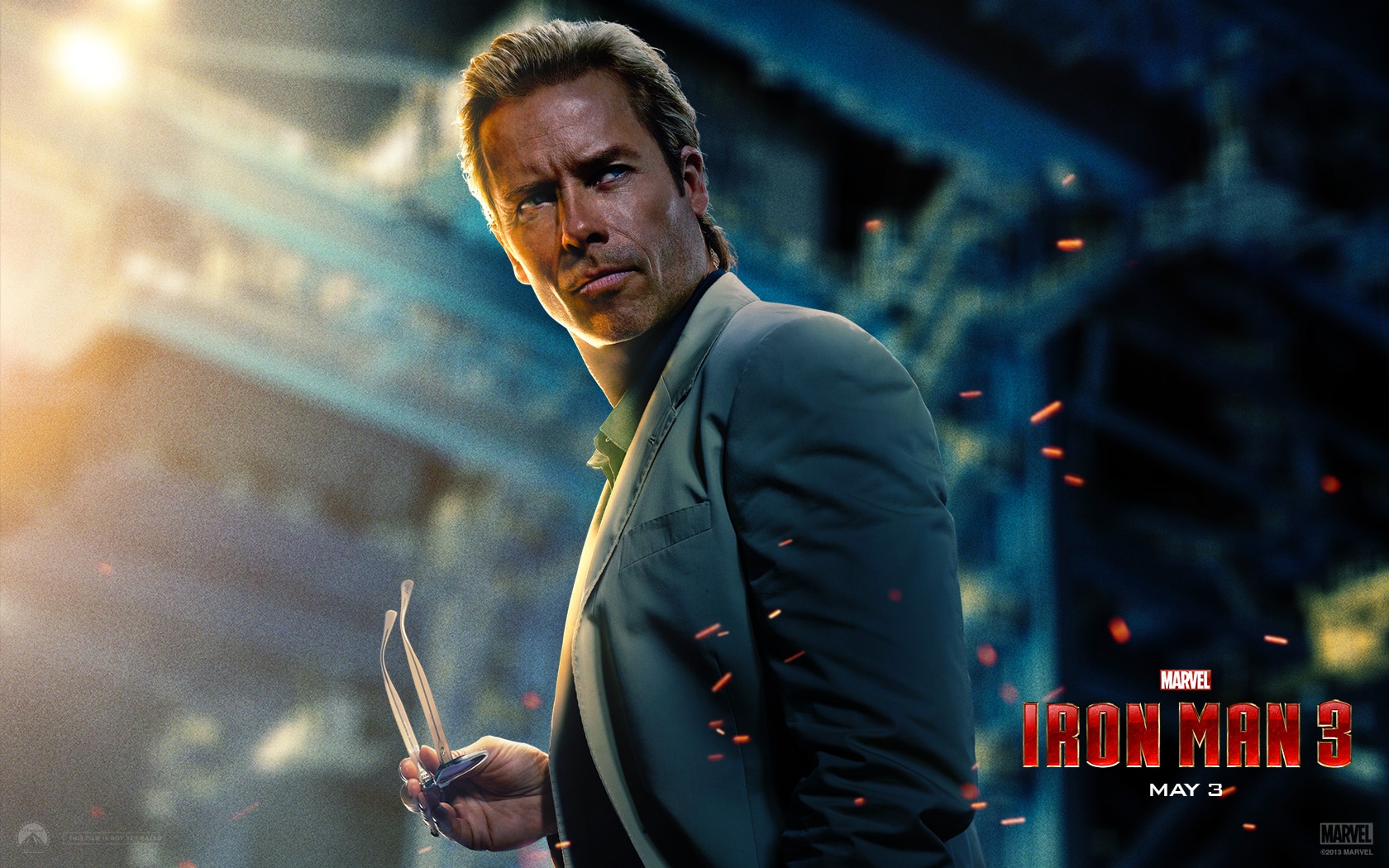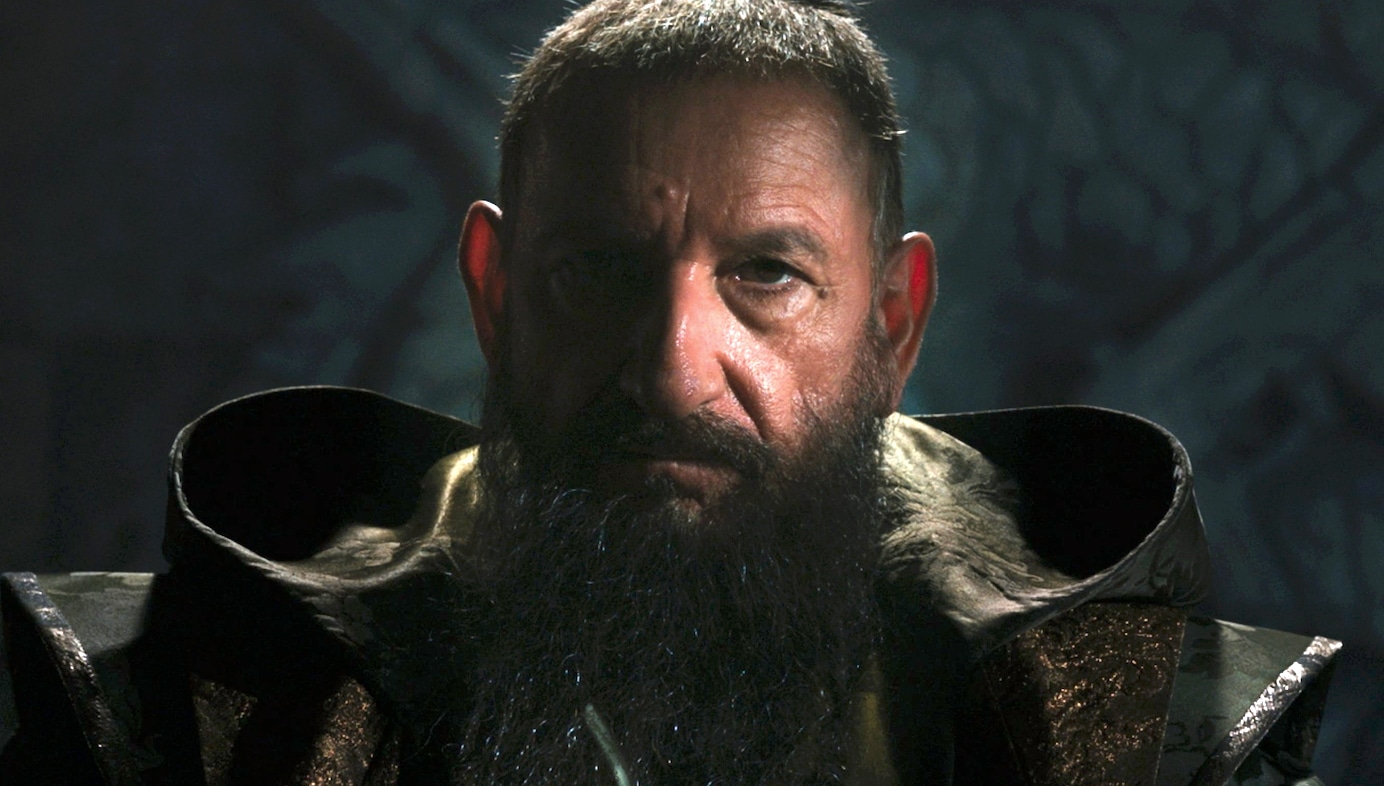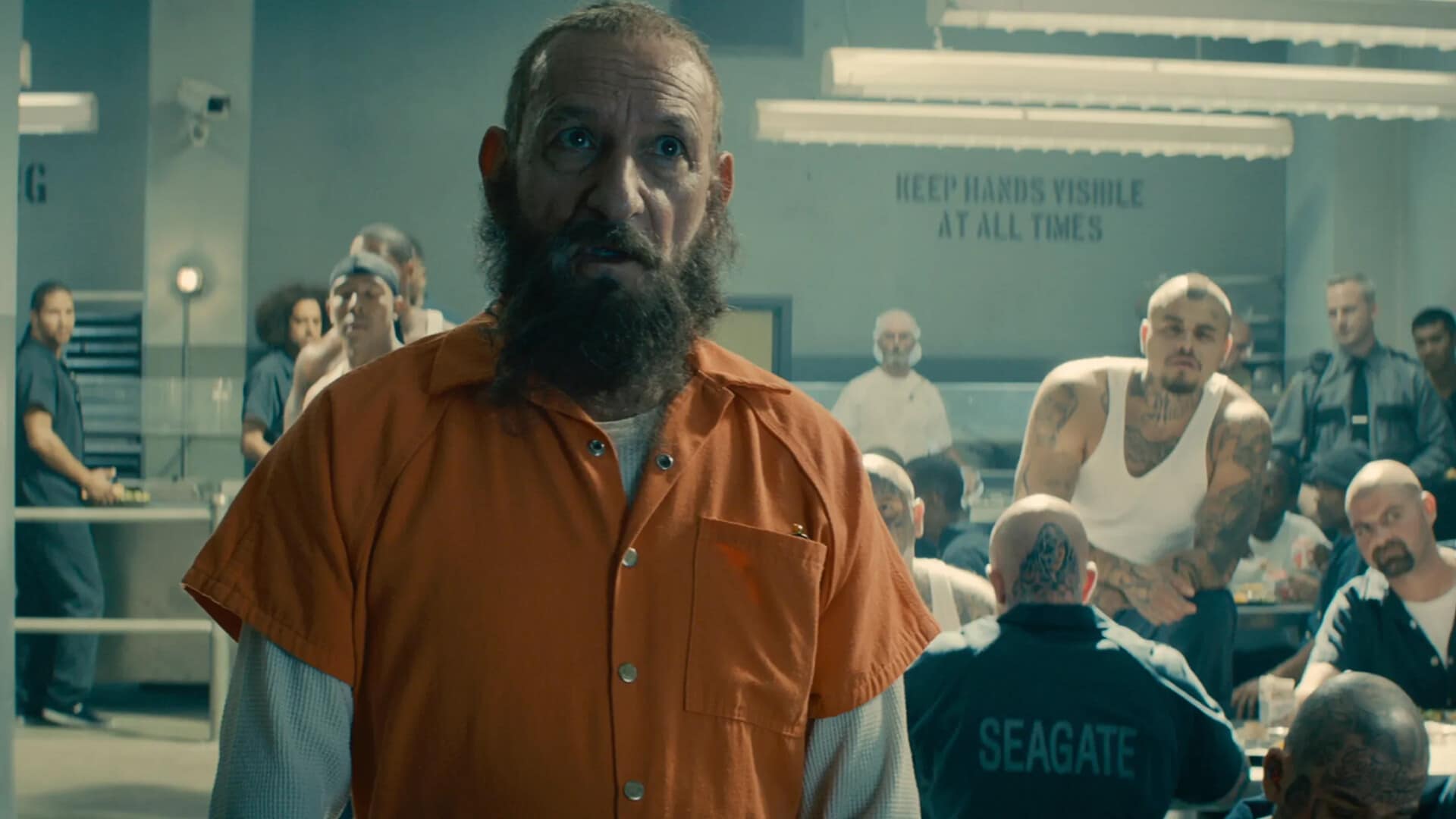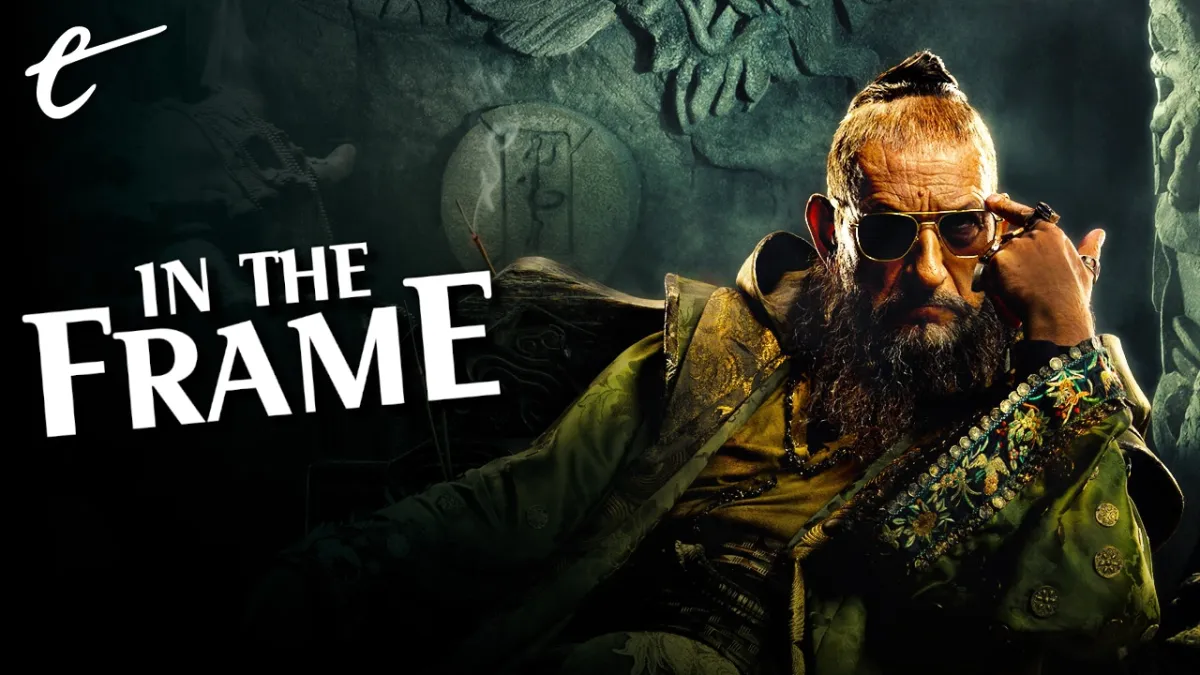When Shang-Chi and the Legend of the Ten Rings releases next week, it will feature a reimagined version of the classic Iron Man villain the Mandarin, played by Hong Kong legend Tony Leung. However, it is worth taking the time to acknowledge the Marvel Cinematic Universe’s previous adaptation of the Mandarin in Iron Man 3. Shane Black’s Iron Man sequel remains one of the best movies in the larger franchise, and its take on the Mandarin remains ingenious.
It is worth acknowledging upfront that the Mandarin is a character with a complicated history. The original comic book villain was a broadly drawn racial caricature. His first appearance introduced him as “the most feared Oriental of all time!” He lurked and schemed “in the Orient — in seething, smoldering, secret Red China.” He had “the blood of the Khans in his veins.” The Mandarin was a stereotype and not a nuanced one. He was another example of the Fu Manchu archetype.
The Mandarin embodied Cold War anxieties about Communist China channeled through American writers and artists with no actual understanding of Chinese culture. It’s worth stressing the double standard. In 1963, the Mandarin’s origin story could be positioned as “the origin of the dragon legend in China,” but over two decades later writer Rick Veitch’s attempt to write an issue of Swamp Thing where the title character met Jesus Christ caused internal panic over cultural sensitivity.
Part of what is interesting about the Mandarin is that the character was never really that big a deal. In press for Iron Man 3, producer Kevin Feige conceded that the Mandarin basically grandfathered his way into a place of prominence in Iron Man’s rogues’ gallery, stating, “The Mandarin is his most famous foe in the comics mainly because he’s been around the longest. If you look, there’s not necessarily a definitive Mandarin storyline in the comics.”

Feige is entirely correct here. There are classic and iconic Iron Man stories: Demon in a Bottle, Armor Wars, Extremis. None of those stories feature the Mandarin. In recent decades, it’s arguable that the Mandarin has been somewhat supplanted in Tony Stark’s rogues’ gallery by the rivalry established with Doctor Doom, who anchors classic Iron Man stories like Doomquest and even entire runs like Brian Michael Bendis and Alex Maleev’s Infamous Iron Man.
The Mandarin has never been a particularly big deal. Website The Complete Marvel Reading Order lists the Mandarin as appearing in 135 comics. This is a minor number compared to most major villains like the Red Skull (315), Norman Osborne (533), Loki (625), and Doctor Doom (694). The Mandarin has appeared less frequently than other characters who have yet to appear in the MCU, like Amora the Enchantress (223), Beta Ray Bill (172), or even other Iron Man villains like Madame Masque (158).
All of this is to illustrate that the Mandarin was fair game for the reinvention employed by Iron Man 3. The Mandarin was hardly iconic or sacred. Director and co-writer Shane Black explained this reworking of the character and concept as a way to avoid dealing “with the specifics of Fu Manchu stereotyping.” However, Iron Man 3 does something much smarter than that. It uses the Mandarin as a clever and self-aware commentary on the character’s origins and cultural context.
“A famous man once said, ‘We create our own demons,’” Tony Stark (Robert Downey Jr.) explains in the movie’s opening lines. A brief prologue plays this idea out in two different ways. Stark’s dismissal of fellow scientist Aldrich Killian (Guy Pearce) inspires Killian to establish the evil empire that spurs the rest of the plot. Goofing with researcher Maya Hansen (Rebecca Hall), Stark drunkenly jots down a highly volatile formula on the back of a name tag that also comes back to haunt him.

This theme is literalized through the concept of the Mandarin. As the action returns to the present day, a mysterious terrorist mastermind calling himself the Mandarin (Ben Kingsley) has taken credit for a string of attacks around the world. The iconography is meticulously chosen to evoke the War on Terror, from his “bin Laden-esque beard” to his “terrorist-style video broadcasts.” On the surface, the Mandarin looks like a direct update to the classic character, just repackaging a new set of fears.
Then Iron Man 3 pulls the rug out from under its characters and its audience. The man claiming to be the Mandarin is actually an out-of-work actor named Trevor Slattery, who has been employed by Aldrich Killian to serve as a front man. “Just a role,” Slattery explains. “The Mandarin, see? It’s not real.” The videos are both a distraction from lethal misfires of Killian’s Extremis technology and a way of stoking anxiety within the United States.
The Mandarin is a “custom-made terror threat” that serves to “create supply and demand” for Killian’s business. It’s a biting piece of social commentary on how the military-industrial complex often creates its own enemies to justify its actions, whether literally by training and feeding organizations like the Mujahideen or metaphorically by supporting uncredible claims about the nature of existent threats.
However, Iron Man 3 goes further. It is not just a metaphor for the War on Terror, but an interrogation of how culture often creates images of its own enemies. Slattery repeatedly comes back to the image of the fortune cookie. “They look Chinese,” he explains. “They sound Chinese. But they’re actually an American invention.” (He later adds that they were “based on a Japanese recipe.” He is correct, with many tracing their origin to Japanese immigrants in California.)

He is talking about more than fortune cookies; he is talking about the idea of the Mandarin itself. Iron Man 3 presents the Mandarin as a product of show business as much as anything else. Arriving on a lavish set, Killian warns the crew that there should be “no talking and no eye contact,” like he’s dealing with a temperamental movie star. “Look around you,” Slattery advises Stark. “The costumes, green screen. Honestly, I wasn’t on location for half this stuff. And when I was, it was movie magic, love.”
As such, Iron Man 3 taps into the long-standing relationship between movie-making and the conduct of foreign policy. During the Cold War, Hollywood produced films intended to convince audiences that there was “a permanent and perpetual threat.” The comic book version of the Mandarin is an example of the sort of caricature designed to feed into that paranoia and anxiety. It is perhaps even more insidious given that the target market for comic books at the time was children.
Of course, this relationship between show business and the military is ongoing. There are famous stories about movies like Top Gun leading to a spike in Air Force recruitment. Much has been made of the long-term relationship between Marvel Studios and the American armed forces and intelligence community. Captain Marvel plays like another Air Force recruitment film. Black Panther features Martin Freeman as a heroic CIA operative.
As such, Iron Man 3 uses the concept of the Mandarin to explore the broader context in which the character was created and had functioned. It’s a very clever approach to the Mandarin. This is particularly notable given Marvel Studio’s long-standing “villain problem,” where the company has struggled to build interesting or memorable villains outside exceptions like Loki (Tom Hiddleston) or Killmonger (Michael B. Jordan). The Mandarin remains one of the best MCU villains.

Similar to how Christopher Nolan’s Dark Knight trilogy approaches the idea of Batman, Iron Man 3 presents the Mandarin as more than just a man. “I am the Mandarin!” Killian boasts at the climax, but he’s not entirely correct. The Mandarin is an idea. The Mandarin is a concept. The Mandarin is not flesh and blood. This makes the Mandarin a much more compelling antagonist than another guy in a suit or another generic omnicidal nihilist.
This is why some of the fan reaction to the Mandarin was so disheartening. Shortly after the film’s release, CinemaBlend published an article with the incendiary headline, “Iron Man 3 Ruined the Mandarin and Real Fans Should Be Pissed,” as if demanding that the film depict “the Fu Manchu stereotype that the comic books portrayed” rather than deconstruct it. Marvel Studios seemed to listen to fans, teasing the appearance of a “real” Mandarin in a direct-to-home-media short.
Black conceded, “The only reason they made that was an apology to fans who were so angry.” Ignoring the question of where this approach to building a shared universe inevitably leads, it is fascinating that Marvel resurrected the character for Shang-Chi and the Legend of the Ten Rings, with Kingsley even making an appearance. The film appears to double down on the Mandarin’s similarities to Fu Manchu, given that Fu Manchu was canonically the lead character’s father.
The predominantly Asian and Asian American cast and crew are mindful of the risks involved with the character. Director Destin Daniel Cretton has admitted “that villain could easily become a punchline” and conceded that “probably the number one fear of all of us was creating a Mandarin that was further contributing to the ‘Yellow Peril’ type of stereotypes that are still flying around.” It will be interesting to see how this pays off. Chinese audiences seem skeptical, and Feige has spent a lot of the Chinese press tour having to address the character’s perceived similarities to Fu Manchu.
Still, the ongoing debate around the legacy of the Mandarin and the character’s relationship to Fu Manchu only further demonstrates how cleverly Iron Man 3 approached a very loaded concept.





